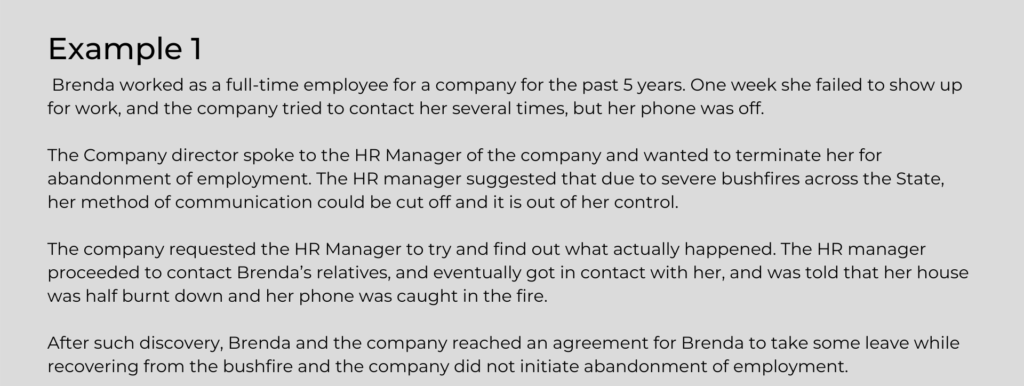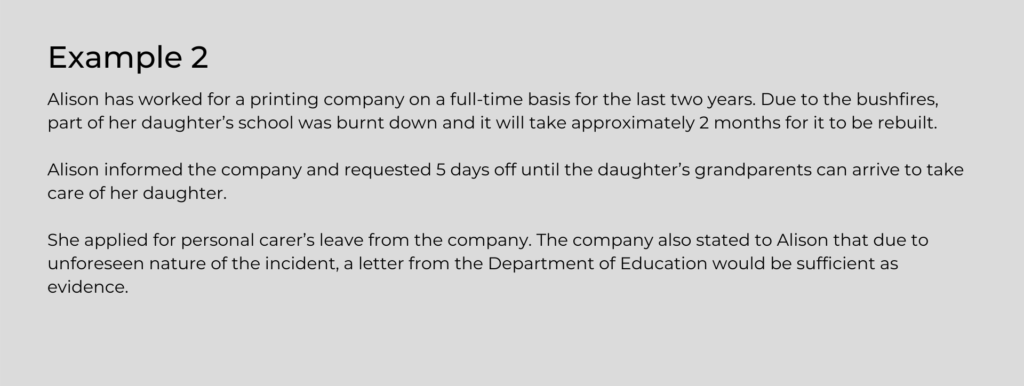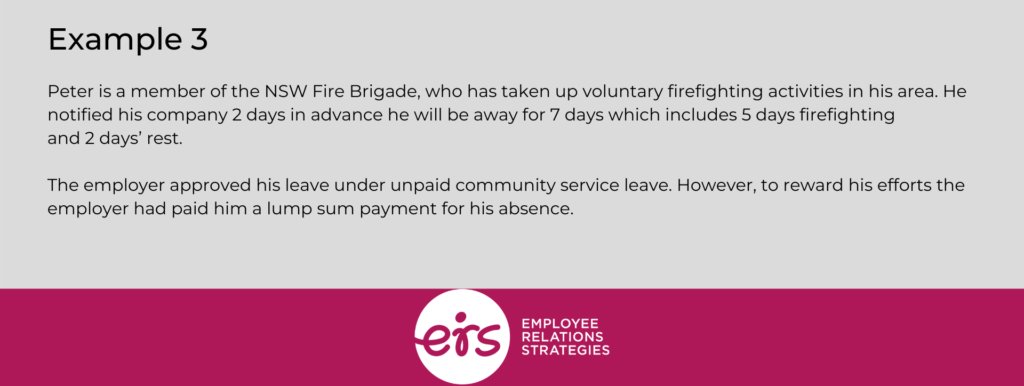With the recent flooding across many parts of Australia, there will be plenty of businesses that are impacted and many of which will be unable to open. So what are the employer’s responsibilities towards their employees?
Temporary closure of business and standing down employees
During a natural disaster, a business may cease to operate temporarily for reasons beyond their control. Under the Fair Work Act 2009 (The Act), an employer retains the right to stand down employees without pay if there is no useful work available. See s524 and 525 of the Act.
If the employer and its employees are covered by an Award or Enterprise Agreement (EA), the employer should consult their respective Award/EA for relevant stand down provisions, if there are any. Before standing down employees without pay, an employer should consult with employees and see if any other alternatives are available.
Options available include:
- Invite employees to take a period of accrued paid leave or agree to changes to rosters so that ordinary hours are worked at another time (eg, make up time)
- Flexible working arrangements, such as work from home or working at other sites not affected by natural disaster
Employee taking time off due to the natural disaster
Natural disasters and emergencies often result in employees taking time off to care for their relatives and family. Employers should assess requests on a case by case basis.
Employers should note the health and wellbeing of their employee during distressing times and be flexible in terms of the evidence requirements during these times, because some facilities may not be readily available for employees to gain access to and obtain required evidence from.
Personal/Carer’s Leave (PCL)
Under the Act, if the employee or an immediate family member of the employee requires care or support, the employee would be eligible to receive paid PCL to assist them. In the event a school is closed due to natural disaster, the employee may be eligible for PCL to take care of their child as this may be treated as an “unexpected emergency”.
What is meant by “an unexpected emergency” is not clearly defined in the Act, therefore it must be assessed on a case by case basis.
If the employee has exhausted their PCL balance, they will be eligible to claim an additional 2 days of unpaid PCL for each permissible occasion.
Casual Employees
Casual employees are also entitled to claim 2 days of unpaid carer’s leave for each occasion when a member of the employee’s immediate family or household requires care or support because of a personal illness, injury, or an unexpected emergency.
If the employer and its employees are covered by an Award or Enterprise Agreement (EA), the employer should consult their respective Award/EA for relevant provisions as well.
Compassionate Leave
Under the Act, all employees are entitled to 2 days of compassionate leave (paid for permanent employees) for each permissible occasion. Permissible occasion includes family sustaining life threatening injury or death.
This may be prevalent during times of natural disaster where homes are destroyed and with people sustaining serious injuries or even death. Also consult your respective Award/EA for relevant provisions.
Community service leave to engage in emergency management activities
Under the Act and the NES, employees are eligible to take community service leave if:
- They are members of a recognised emergency management body,
- They are undertaking certain emergency activities dealing with natural disaster,
- The amount of leave must be reasonable by considering:
– time when the employee engages in the activity,
– reasonable travelling time associated,
– reasonable resting time.
Under the Act it is all about what is reasonable, requiring an assessment on a case by case basis.
Despite the Act not requiring payment for such absences, some companies still choose to pay their employees during such leave. Consult your respective Award/EA for relevant provisions.
Process of abandonment of employment and communication
Without doubt, a natural disaster causes severe stress on employees and employers, which could also disrupt communication between the employer and employees.
Before proceeding to making use of ‘abandonment of employment’ rights (which can at times be less certain than many employers assume), the employer should try their best to make contact with their employee, and take into account the communication difficulties at this time. The employer can use other available means of communicating, including contacting family members of the employee who might know why they have not been in contact.
If no direct contact can be made, normal methods of contact such as writing letters may not work either, so employers are advised to take extra steps to be confident that their employee has genuinely abandoned their employment before using it as a basis to assume the employment has been terminated.



Contact ER Strategies on 1300 55 66 37 or fill in the Contact Us form if you need any assistance in regard to these issues, or indeed any other employment issues.

